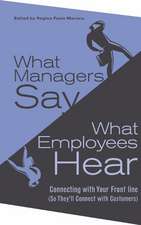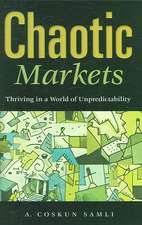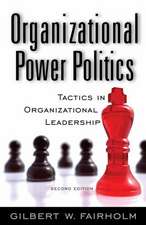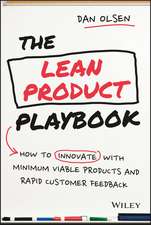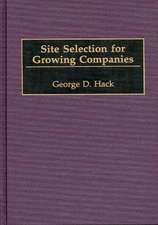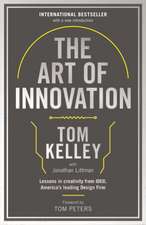Managing a Company in an Activist World: The Leadership Challenge of Corporate Citizenship
Autor Edmund M. Burkeen Limba Engleză Hardback – 27 feb 2005 – vârsta până la 17 ani
Preț: 287.74 lei
Preț vechi: 349.76 lei
-18% Nou
Puncte Express: 432
Preț estimativ în valută:
55.07€ • 57.28$ • 45.46£
55.07€ • 57.28$ • 45.46£
Carte tipărită la comandă
Livrare economică 14-28 aprilie
Preluare comenzi: 021 569.72.76
Specificații
ISBN-13: 9780275983901
ISBN-10: 0275983900
Pagini: 208
Dimensiuni: 156 x 235 x 21 mm
Greutate: 0.51 kg
Editura: Bloomsbury Publishing
Colecția Praeger
Locul publicării:New York, United States
ISBN-10: 0275983900
Pagini: 208
Dimensiuni: 156 x 235 x 21 mm
Greutate: 0.51 kg
Editura: Bloomsbury Publishing
Colecția Praeger
Locul publicării:New York, United States
Notă biografică
Edmund M. Burke is founder and Director Emeritus of the Center for Corporate Citizenship at Boston College. The author of Corporate Community Relations (Quorum, 1999), he conducts seminars and training programs on corporate citizenship and consults to business leaders on issues of social responsibility and strategy.
Cuprins
ForewordPrefaceAcknowledgmentsWith Apologies to James Carvelle. "It's the Behavior, Stupid"The Case for ChangeThe Faces of ActivismStep One: You Start with a Vision--A Social VisionStep Two: Abandon Command and Control Style of Managing External AffairsStep Three: Use the CACDIC StrategyStep Four: Who Are Our External Stakeholders and What Do They Value?Step Five: What Are the Characteristics of Our Relationships?Preparing Managers for the New New ThingThe Stakeholder Relations PlanThe Site Community Strategy: A Responsibility of the Facility ManagerThe Community Strategy, ContinuedThe Societal Strategy--The CEO's ResponsibilityNotesIndex
Recenzii
Burke offers what appears to be a complete approach for the strategic development of an organizational plan for corporate social responsiveness and responsibility. He provides three background chapters before detailing his five-step approach for identifying and understanding stakeholders, preparing managers, and developing a stakeholder plan. Of particular interest is his clear separation of the role of the organization's CEO for societal strategy and that of the facility manager for community strategy. An employee development worksheet is provided, as are chapter endnotes. Recommended. Upper-division undergraduate through professional collections.



